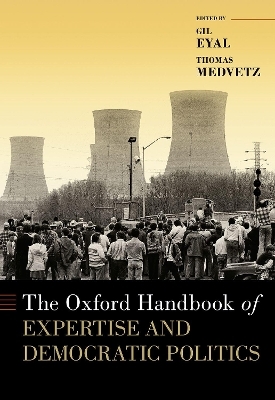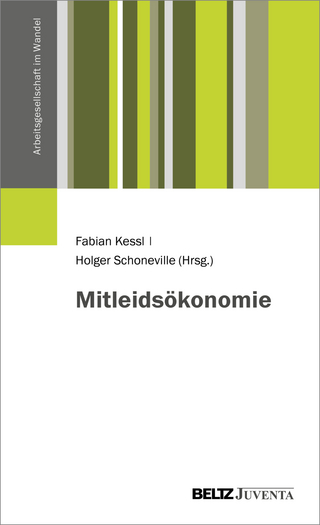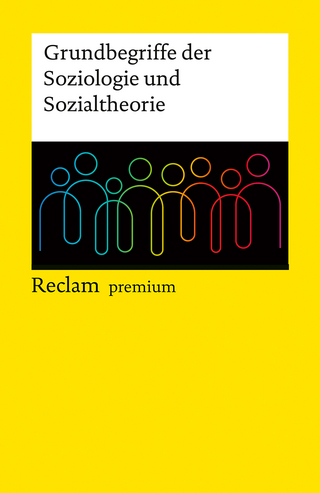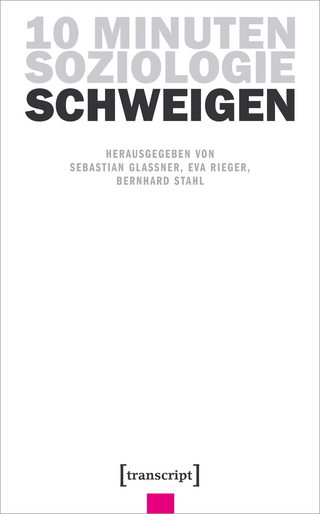
The Oxford Handbook of Expertise and Democratic Politics
Oxford University Press Inc (Verlag)
978-0-19-084892-7 (ISBN)
As the number of contenders for expert status has increased, as the bases for their claims have become more diverse, and as the struggles between these would-be experts intensified, expertise became problematic and contested. In The Oxford Handbook of Expertise and Democratic Politics, Gil Eyal and Thomas Medvetz have brought together a broad group of scholars who have engaged substantively and theoretically with debates regarding the nature of expertise and the social roles of experts to examine these areas within sociology and allied disciplines. The analyses take an historical and relational approach to the topic and are motivated by the sense that growing mistrust in experts represents a danger to democratic politics today. Among the topics considered here are the value and relevance of the boundary between experts and laypeople; the causes and consequences of mistrust in experts; the meanings and social uses of objectivity; and the significance of recent transformations in the organization of the professions.
Bringing together investigations from social scientists, philosophers, and legal scholars into the political dimensions of expertise, this Handbook connects interdisciplinary work done in science and technology studies with the more classic concerns, topics, and concepts of sociologists of professions and intellectuals.
Gil Eyal is Professor of Sociology at Columbia University. His research focuses on various types of expertise, as well as the sociological theory of expertise, lay expertise and the politics of expertise. He is the author of The Crisis of Expertise (2019), The Autism Matrix (2010) and The Disenchantment of the Orient (2006). He has also published various articles on intellectuals, experts, and expertise in Theory and Society, BioSocieties, the Annual Review of Sociology, Sociological Theory, and the American Journal of Sociology. Thomas Medvetz is an Associate Professor of Sociology at the University of California, San Diego. His research focuses on the political role of experts, professionals, and intellectuals in modern societies. He is the author of Think Tanks in America (2012), a book based on his study of the history and impact of think tanks in the United States. He has also written or co-written academic articles about public intellectualism and the contemporary American conservative movement. His work has appeared in journals such as Actes de la Recherche en Sciences Sociales, the Annual Review of Sociology, Politics & Society, Public Culture, and Qualitative Sociology.
1. Introduction
Gil Eyal and Thomas Medvetz
Part I. The Fraught Relations between Expertise and Democracy
2. Trust and Distrust of Scientific Experts and the Challenges of the Democratization of Science
Peter Weingart
3. The Third Wave and Populism: Scientific Expertise as a Check and Balance
Harry Collins, Robert Evans, Darrin Durant, and Martin Weinel
4. The Meaning and Significance of Lay Expertise
Steven Epstein
5. On the Multiplicity of Lay Expertise: An Empirical and Analytical Overview of Patient Associations' Achievements and Challenges
Madeleine Akrich and Vololona Rabeharisoa
6. The Political Climate and Climate Politics-Expert Knowledge and Democracy
Nico Stehr and Alexander Ruser
Part II. Trust
7. Mistrust of Experts by Populists and Politicians
Robert P. Crease
8. A Regulatory State of Exception
Andrew Lakoff
Part III. Objectivity
9. Experts in Law
Tal Golan
10. Institutions of Expert Judgment: The Production and Use of Objectivity in Public Expertise
Brice Laurent
11. Expertise and Complex Organizations
Stephen Turner
12. Data and Expertise: Some Unanticipated Outcomes
Theodore M. Porter and Wendy Nelson Espeland
13. Experts in the Regulation of Technology and Risk: An Ecological Perspective on Regulatory Science
David Demortain
14. Expert Power and the Classification of Human Difference
Daniel Navon
Part IV. Jurisdictional Struggles
15.Battle of the Experts: The Strange Career of Meta-Expertise
Frank Pasquale
16. Gender and Economic Governance Expertise
Maria J. Azocar
17. Field Theory and Expertise: Analytical Approaches and the Question of Autonomy
Zachary Griffen and Aaron Panofsky
Part V. Making the Future Present
18. Addressing the Risk Paradox: Exploring the Demand Requirements around Risk and Uncertainty and the Supply Side Limitations of Calculative Practices
Denis Fischbacher-Smith
19. Expertise and the State: From Planning to Future Research
Jenny Andersson
Part VI. The Transformation and Persistence of Professions
20. Professional Authority
Ruthanne Huising
21. The Postindustrial Limits of Professionalization
Paul Starr
22. (In)expertise and the Paradox of Therapeutic Governance
E. Summerson Carr
Part VII. New Media and Expertise
23. The Social Distribution of the Public Recognition of Expertise
Jakob Arnoldi
24. Media Metacommentary, Mediatization, and the Instability of Expertise
Eleanor Townsley
| Erscheinungsdatum | 13.05.2023 |
|---|---|
| Reihe/Serie | OXFORD HANDBOOKS SERIES |
| Verlagsort | New York |
| Sprache | englisch |
| Maße | 250 x 181 mm |
| Gewicht | 1080 g |
| Themenwelt | Sozialwissenschaften ► Soziologie ► Allgemeines / Lexika |
| Sozialwissenschaften ► Soziologie ► Mikrosoziologie | |
| ISBN-10 | 0-19-084892-8 / 0190848928 |
| ISBN-13 | 978-0-19-084892-7 / 9780190848927 |
| Zustand | Neuware |
| Informationen gemäß Produktsicherheitsverordnung (GPSR) | |
| Haben Sie eine Frage zum Produkt? |
aus dem Bereich


